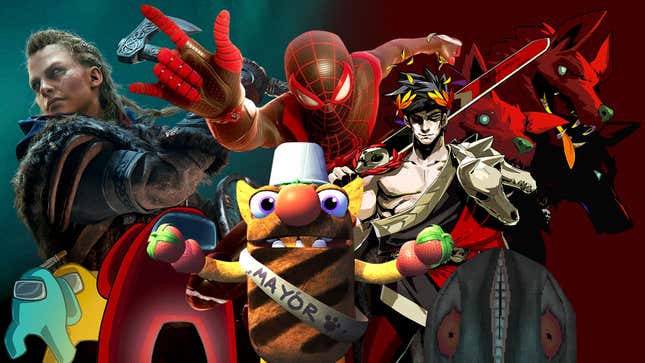
God, that was a weird one, huh?
As a rule, gaming took fewer hits from 2020 than most other aspects of the entertainment industry—a few delays here, the occasional massive, discourse-destroying trainwreck there—but overall, pretty smooth sailing. As such, our annual list of the year’s most interesting games takes two fairly divergent paths: Those games that gave us comfort and connection in this most bizarrely hermetic of years, and those that pushed the boundaries to provide something fascinating and new. The push-and-pull there has been endlessly intriguing, as a two-year-old mobile game suddenly became the topic of congressional interest, old franchises learned some shockingly new tricks, and Bugsnax did… well, whatever the hell it is, exactly, that Bugsnax did. (Horrify us with cartoon food monsters, mostly.)
The A.V. Club’s Games team is here to present our picks for our favorite games that came out in 2020 (or, at least, gained prominence in same), focusing as much as we can on games that we didn’t already cover with our mid-year piece—so no Last Of Us II, Final Fantasy VII Remake, or other faves from the top-half of the year. As always, we’ve eschewed a formal ranking in favor of our breakdown of the Games We Liked—complete with our “I liked ____ because ____” formulation for getting our preferences in order. Feel free to read the list, and then click over to the comments to give us your own takes on what went right and wrong in 2020 (Video Games Only edition, please); we’ll take some of your answers for our traditional Games You Liked feature that’ll run next week.
And now, without further ado: The games!